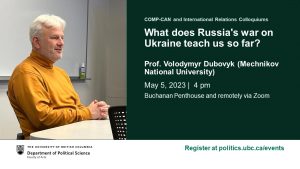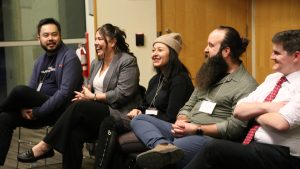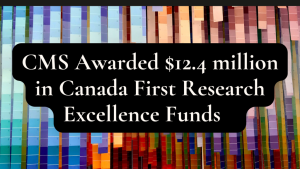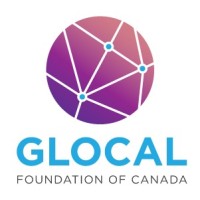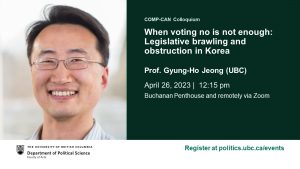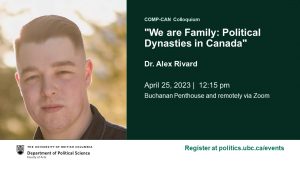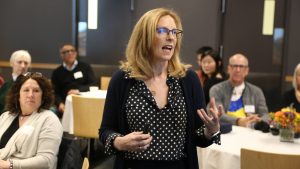Watch: “What does Russia’s war on Ukraine teach us so far?” Prof. Volodymyr Dubovyk
In this cohosted event by our COMP-CAN and International Relations Colloquiums, Prof. Volodymyr Dubovyk addresses takeaways from the War in Ukraine, including what it means for military technology, international law and large-scale warfare
UBC Political Science Undergrads learned from our alumni at a careers workshop and panel
We hosted “Career Design Journeys,” a workshop and panel discussion for undergraduates which featured UBC Arts Career Strategist, Carli Fink, and a panel of UBC Political Science Alumni.
UBC Centre for Migration Studies, Profs Ellermann & Hopkins, part of $12M Bridging Divides research program
Profs. Antje Ellermann and Vince Hopkins are among seven UBC core researchers as part of the Bridging Divides research program, led by Toronto Metropolitan University. The Center for Migration Studies has been awarded $12.4 million in Canada First Research Excellence Funds as a partner on the program.
Q&A with Faye Ying, GLOCAL Foundation Founder and Executive Director
UBC Political Science Alumnus Faye Ying answers our questions about her goals, the impact of her time at UBC, her work at GLOCAL: “Innovative problem-solving requires us to be able to connect the dots that we normally consider unrelated.”
Watch: “When voting no is not enough: Legislative brawling and obstruction in Korea” Prof. Gyung-Ho Jeong
Professor Gyung-Ho Jeong argues that legislators with intense policy preferences engage in costly actions, such as brawling and obstruction, as a means of signaling their policy commitments.
Watch: “We are Family: Political Dynasties in Canada” Dr. Alex Rivard
Using a unique dataset of legislators’ electoral and biographic data in the Canadian federal and provincial parliaments, UBC Political Science PhD Graduate Alex Rivard analyzes the extent to which family dynasties affect the career development of legislators since the late 1700s.
We’re Hiring: Merilees Chair for the Study of Democracy (Professor)
The Department of Political Science invites applications for the Harold and Dorrie Merilees Chair for the Study of Democracy.
UBC Political Science is looking to fill up to two Lecturer positions
The Department of Political Science is seeking to hire up to two full-time Lecturers, who will teach courses at the undergraduate level including Introduction to Politics, other lower-level survey courses, and courses in their field of specialization based on the teaching needs of the Department.
Watch: Prof. Kathryn Stoner delivers this year’s Mark Zacher Distinguished Speaker Lecture
Mark Zacher Distinguished Speaker Prof. Kathryn Stoner presented a lecture titled, “Russia’s War on Ukraine: What You Should Know and Why You Should (Still) Care,” discussing why Russian President Vladimir Putin invaded Ukraine in February 2022, what he wants, what damage he has inflicted on Ukraine, and how this impacts Russia’s economic and political evolution.
Prof. Kurt Huebner: Green Finance and Climate Policies in Canada and Germany
Green financial products are critical to the transition to net zero carbon emission economies, Prof. Kurt Huebner writes.Certification regimes for green financial products need to be made universal to avoid the misallocation of resources and the practice of greenwashing.
